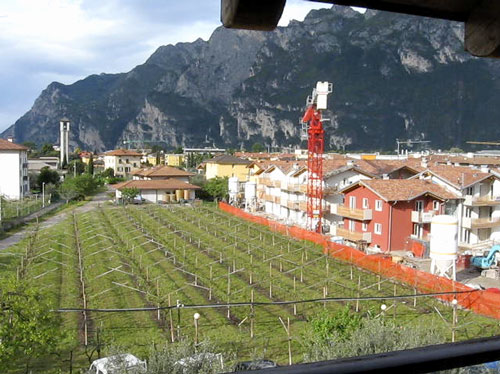Ciao a tutti! – Hello all!

Last time we tried to learn 10 new verbs and all theirs forms. And, I know, it’s a lot of words, and it’s difficult. Happily, there’s a trick how to build sentences in Italian easily – sentences with modal verbs (Verbi Modali).
There are 3 modal verbs in Italian + 1 semi-modal helper:
- potere – can
- volere – want
- dovere – have to (obligation)
- sapere – to know (semi-modal)
Potere (can) – irregular modal verb
Yup, it ends on -ere, but this time it’s irregular. And we need to remember all it’s forms:
- io posso – I can
- tu puoi – you can
- lui/lei può – he/she can
- noi possiamo – we can
- voi potete – you can
- loro possono – they can
Why it’s so important?
Let’s look at few examples. In English we can say a lot of sentences with 2 verbs (modal + regular):
- I can help you.
- She can come today at five o’clock.
- They can swim very fast.
- We can invite you to the cinema.
Same in Italian. But important thing to know – only modal verb changes it’s form. Second verb is just used ‘as is’! And it’s really amazing:
- Posso chiamare alle 3 (tre) – I can call at 3 o’clock.
- Puoi chiamare alle 3 – You can call at 3.
- Può chiamare alle 3 – She can call at 3.
- Possiamo chiamare alle 3 – We can call at 3.
- Potete chiamare alle 3 – You can call at 3.
- Possono chiamare alle 3 – They can call at 3.
Chiamare, chiamare, chiamare – second verb doesn’t change. Only modal verb changes! That means now we can use all the verbs we learned without knowing theirs type and form. But only together with a modal verb (which changes).
Modal verb – questions and negative sentences
To ask a questions we add a bit of an intonation + a question mark in the end:
- Puoi chiamare alle 3? – Can you call at 3?
- Possono chiamare alle 3? – Can they call at 3?
In negative sentences, non is added before a modal verb:
- Non posso chiamare alle 3 – I cannot call at 3.
- Non puoi chiamare alle 3 – You cannot call at 3.
- Non può chiamare alle 3 – He/She can’t call at 3.
- Non possiamo chiamare alle 3 – We cannot call at 3.
- Non potete chiamare alle 3 – You can’t call at 3.
- Non possono chiamare alle 3 – They can’t call at 3.
Vocabulary and homework
You can already start building sentences with the verbs we know (cantare, aprire, …). And as usual we’ll take couple more new words today:
- venire – to come
- cucinare – to cook [kuchin'are]
- qualcosa – something
- stasera – tonight
- parlare – to speak
- riparare – to repair
- la macchina – a car [la m'akkina]
- guidare – to drive
- giocare a calcio – to play football [c'alchio]
- nuotare veloce – to swim fast [vel'oche]
venire – to come
- Posso venire alle 5 (cinque)? – Can I come at 5?
- Puoi venire alle 5? – Can you come at 5?
- Non possono venire alle 5. – They can’t come at 5
cucinare qualcosa stasera – to cook something tonight
- Possiamo cucinare qualcosa stasera – We can cook something tonight
- Potete cucinare qualcosa stasera? – Can you cook something tonight?
- Non possiamo cucinare stasera. – We can’t cook tonight.
parlare – to speak
- Posso parlare l’Italiano molto bene – I can speak Italian very well.
- Non posso parlare l’Italiano molto bene – I can’t speak Italian very well.
- Potete parlare l’Italiano molto bene? – Can you speak Italian very well?
- Si, possiamo parlare l’Italiano molto bene. – Yes, we can speak Italian very well.
riparare la macchina – to repair a car
- Puoi riparare la macchina alle 3? – Can you repair a car today at 3?
- Non posso riparare la macchina. – I can’t repair a car.
- Lui può riparare la macchina? – Can he repair a car?
- Si, può riparare la macchina. – Yes (he) can repair a car.
Try to make more statements and questions with potere modal verb and these phrases:
- guidare la macchina – to drive a car
- giocare a calcio – to play football
- nuotare veloce – to swim fast
Grazie a tutti! – Thanks everybody!
A dopo! – See you later!